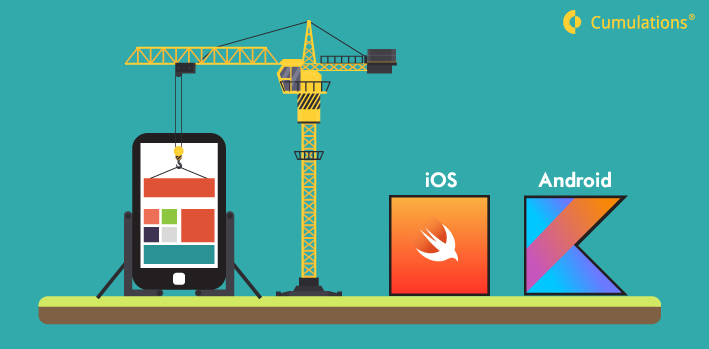
The mobile apps market has inflated now thanks to the unfaltering demand for smartphones and smartphone apps. To meet the increasing demand for smartphone apps, there is also an increase in the number of app developers and app development companies.
Earlier, it was all about Objective C for iOS and Java for Android. But Things have changed. Both these languages have been there almost forever. These languages are also the most widely accepted ones by the developers all over. But these facts cannot overpower the factor that these languages do come with their minor flaws. To start with, the syntax is not a very simple one for these languages. This makes the codes lengthy. This makes these codes a tad bit difficult to comprehend as well. What did the tech giants do to overcome these issues? Apple came up with an answer in the form of Swift. JetBrains created something similar for Android and named it Kotlin. Now Google supports Kotlin officially. These two languages have changed the game altogether. Codes are no more synonymous with verbose, hard to fathom codes.
Swift revolutionizing the iOS app market:
Designed not entirely to replace Objective C but to offer to the developers what C didn’t offer and to avoid all the troubles caused by C, this language has made a stable place for itself in the industry. Though it was not very well accepted in the early stages, the subsequent versions and the noticeable benefits of Swift have made this a favorite for many developers. For those who are already working with Objective C, Swift is pretty straightforward to adopt. Even for the beginners, this is a comparatively simpler language to use in iOS, MacOS and OS X development. Though it is simple it is also a powerful language. It allows developers to create apps that can make the best use of Apple hardware. Swift is free from pointer variable troubles. Objective C got rid of the complexity of manually managing memory recently, thanks to the introduction of automatic reference counting which has now been integrated into Swift as well. There is a long list of similar such advantages that Swift brings to the developers.
What has Kotlin done to Android app development?
After ages of the trend of Android developers using Java, Kotlin came as a whiff of fresh air. Kotlin, as a JVM, is found to be backward compatible. It is also possible to easily integrate the language in the existing Java codes. Instant conversion from Java to Kotlin to coded snippets is possible. Much like Swift for Objective C, Kotlin is only aimed at making things better for Android developers instead of replacing Java. The interoperability of the language makes it easily acceptable. The learning process for developers to adopt Kotlin is also shorter. The language has also been popular thanks to the impressive support by JetBrains.
Must read: Android Officially Support Kotlin Programme Language
Changing the face of mobile app development:
Talking about the impact of these languages in the mobile app development scenario, the influence is mainly because of the strengths of these languages. When we compare the basic traits, both the languages are similar in so many ways. Firstly, the syntax being simpler, the codes are easier to read and write as well. Easier the language, lower the chances of errors. The length of the code on the whole is shorter than an average Objective C code and Java code. In today’s marketplace, we find an ever growing number of apps. This means that every app launched in the market has a lot of benchmarks to meet to survive in the competition. But to make use of all the features of the smartphone, to develop a powerful app that can offer the best user experience it might take a relatively more complex and longer code with the conventional programming language. This can be tackled by Swift and Koltin. And there is a rise in the need for an intelligent app. This is only going to make things a bit more taxing for the developers. In such instances, making the crux simpler would be a good place to start. This is why adopting Kotlin and Swift can altogether alter the app development market.


 +91-984-5825982 | +91-996-4689921
+91-984-5825982 | +91-996-4689921 sales@cumulations.com
sales@cumulations.com Send your requirement
Send your requirement 



